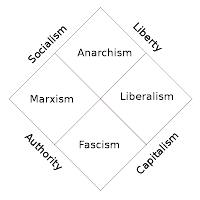The
current news about the US government shutting down, at least
partially, and the looming debt crisis that could take both the
American and the global economy for an undesirable and unpleasant
spin is rather baffling, to put it mildly. How can a government just
shut down is my main question and concern here.
Some
of the main problems with the American political structure are due to
its two-party system. There simply is not enough diversity in the
government body; since they are more often split evenly that can cause
serious problems when it comes to decision-making.
We
can see it as the bickering between two people. In relationships
sometimes negotiations can also come to a halt and one avoids
addressing the other. This would continue until one party
accepts concessions and incites and invites the other to have a
dialogue again.
When
things get to an impasse, we would need a somewhat impartial
third-party to help us smooth our differences. In our relationships,
this could be a friend or a relative who helps us see beyond our own
narrow and set views.
Likewise,
the Democrats and Republicans have their own love-hate relationship.
Since the powers are split quite evenly, things can easily come to a
standstill. But in most other countries, there are more parties to go
around – the more the merrier – and so if you wanted to make such
vital decisions, you would have to consult and would need the support
of others to get it done. In other words, it would be more difficult
and cumbersome to shut down the government.
Yet
it is not only the limited amount of parties that is of issue here,
but also the lack of clear ideology. Most of the times, the US feels
like a one-party government. There are so many overlaps between their
positions that it is at times difficult to discern who represents
which party.
One
of these examples is the occasional switching between party lines. It
then seems like a game of hot potatoes where people simply change
their allegiance. If the parties were significantly different from
each other along the political spectrum this would be a very rare
event since the left and right wings would rarely meet each other
halfway on the centrist path.
My
second point relates to the startling history of both parties. In
fact, in the past, it was the Democrats who were the “bad” guys
and who were broken up into War and Peace Democrats, while great Republican
heroes and thinkers like Abraham Lincoln fought unjust laws and
regulations, such as slavery. As a visible minority your vote used to
go to the Republicans who initially took civil rights to heart.
Then the parties became mirror images of each other. The
Democrats became champions of civil rights and justice especially
after Roosevelt's New Deal, while the Republicans generally opposed
such rulings or liberal ideas. The country became split similar to
Civil War times where the South differed significantly in ideology from
the North.
It
seems to me bizarre that both parties could overhaul their historical
records and positions. It astonishes me because it does not give us
stability and accountability in views and ideology. In other words,
this gives the impression that any party could go in any direction at
any time at a whim. That would make voting much more difficult and as
reliable and trustworthy as reading your horoscope.
All
in all, there is not enough choice offered in American politics. It
is chicken breast or thighs, but both parts come from the same
animal. Since the spectrum of political views is not covered
sufficiently, there is not only more bickering but also more
variation among the politicians themselves and within the party. This
leads to contradictory statements about Democrat presidents having
been the best Republicans in office, and vice versa.
Since
there is so much leeway and lack of alignment within one's party, we
have movements such as the Tea Party, which is giving the whole
Republican party a dangerous turn towards the right. Within the
party, there is a lack of harmony because it includes a dissonant
and desolate body of voices and opinions. Perhaps it would be good
idea and time to separate such minor factions and to turn them into
viable opposition parties.
Indeed
as polls suggest about a third of the American population consider
themselves as Independents, perhaps waiting to align themselves with
an alternative third party. Because next time, people vote for a
party, they will want to have more security and assurance to get who and what
they believed voting for in the first place.


No comments:
Post a Comment